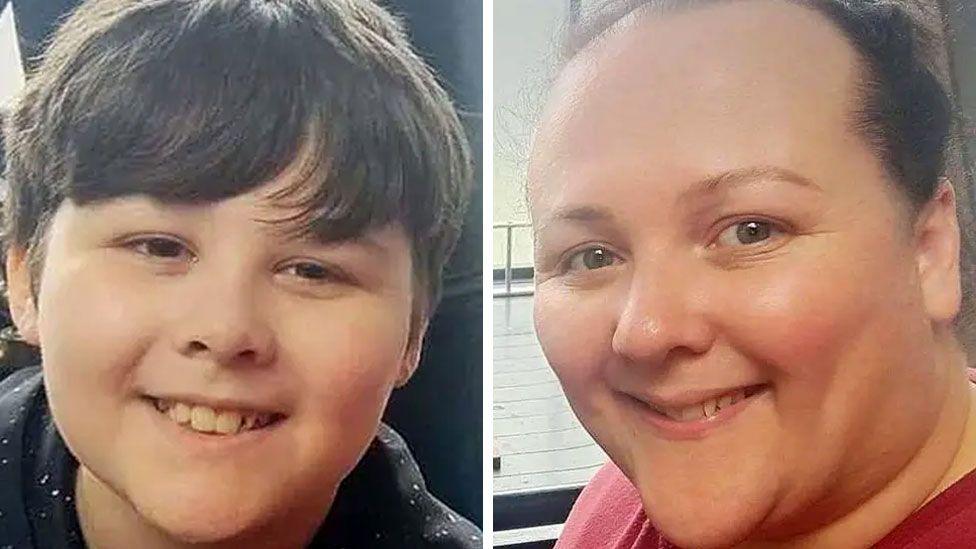Primary school pupil suspensions in England double in a decade
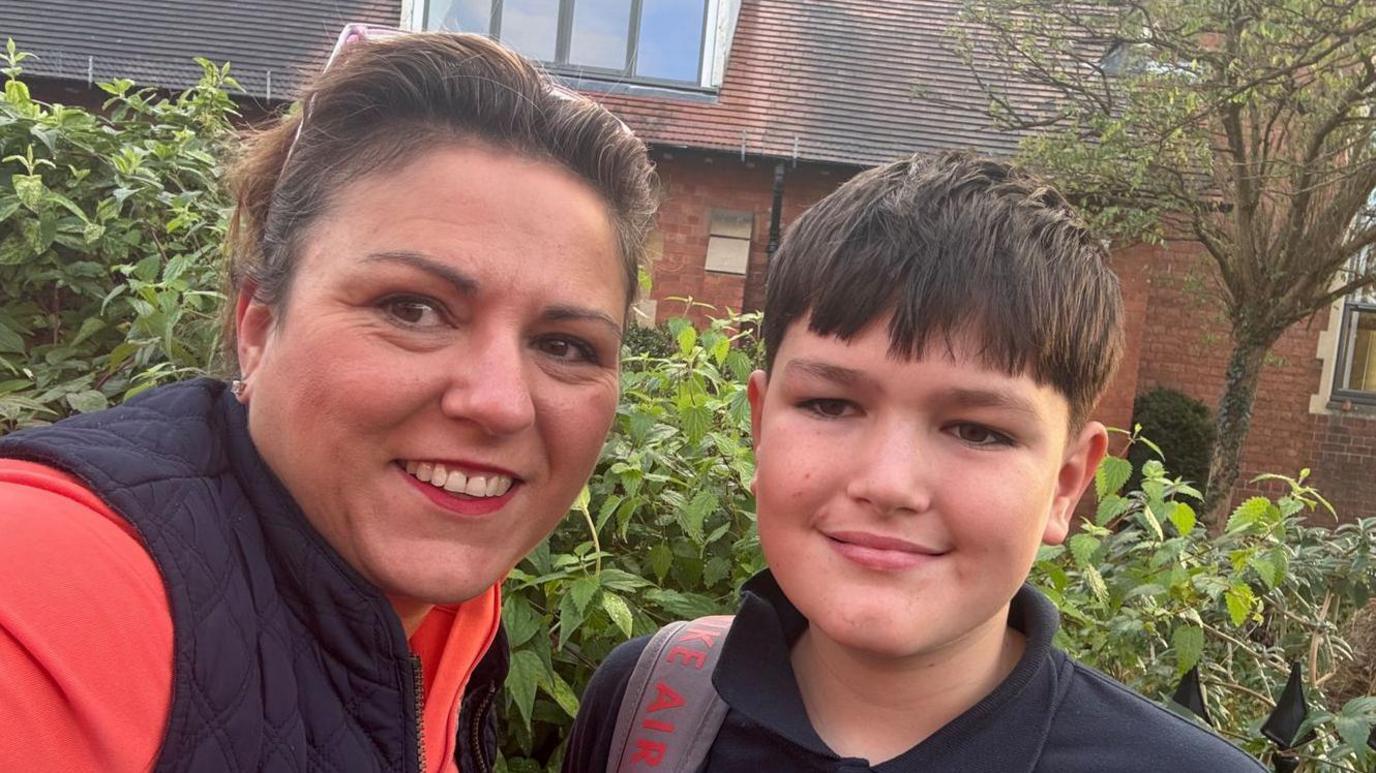
- Published
The rate at which primary school pupils are being suspended from state schools in England has more than doubled in a decade, BBC analysis suggests.
New data released on Thursday showed over 37,000 suspensions in primary schools in the autumn term of last year - almost as many as in the whole of 2012/13.
Permanent exclusion rates of primary-age pupils have also gone up - by almost 70% in the same period - with campaigners warning that affected children can experience long-term impacts.
The government has acknowledged the situation is at "crisis point", and says it is determined to "drive up standards" in schools.
Jo’s 10-year-old son Jacob was suspended from his primary school several times, before recently getting permanently excluded for persistent disruptive behaviour. Jacob has an education, health and care plan (EHCP) after an ADHD diagnosis, and is awaiting an autism assessment.
Persistent disruptive behaviour is the most common reason given to suspend or exclude a pupil. But in primary schools, nearly 90% of those permanently excluded over the past five years also had special educational needs and disabilities (Send).
Jo says her son is a “very caring boy” who loves rugby and gaming, but his sensory issues meant he struggled to cope with larger class sizes.
His mum says she lived with constant anxiety about when the phone would next ring because of another incident at school.
Jacob’s school had put in place one-to-one support and access to a speech and language therapist, but Jo says there was no suitable space at the school for her son to decompress.
Record year for school suspensions and exclusions
- Published18 July 2024
How will new Ofsted school ratings work?
- Published28 April
Jo says the day Jacob was permanently excluded was “the most horrific day of my life”. She is currently appealing against the school’s decision.
The school told the BBC it was unable to comment on Jacob’s case, but says permanent exclusion is only taken in exceptional circumstances, and that it tries to put support in place to meet the needs of pupils with Send.
The number of suspensions and exclusions in England’s state schools has been rising in recent years - apart from a dip during the pandemic when most children were educated at home - reaching their highest levels since 2006.
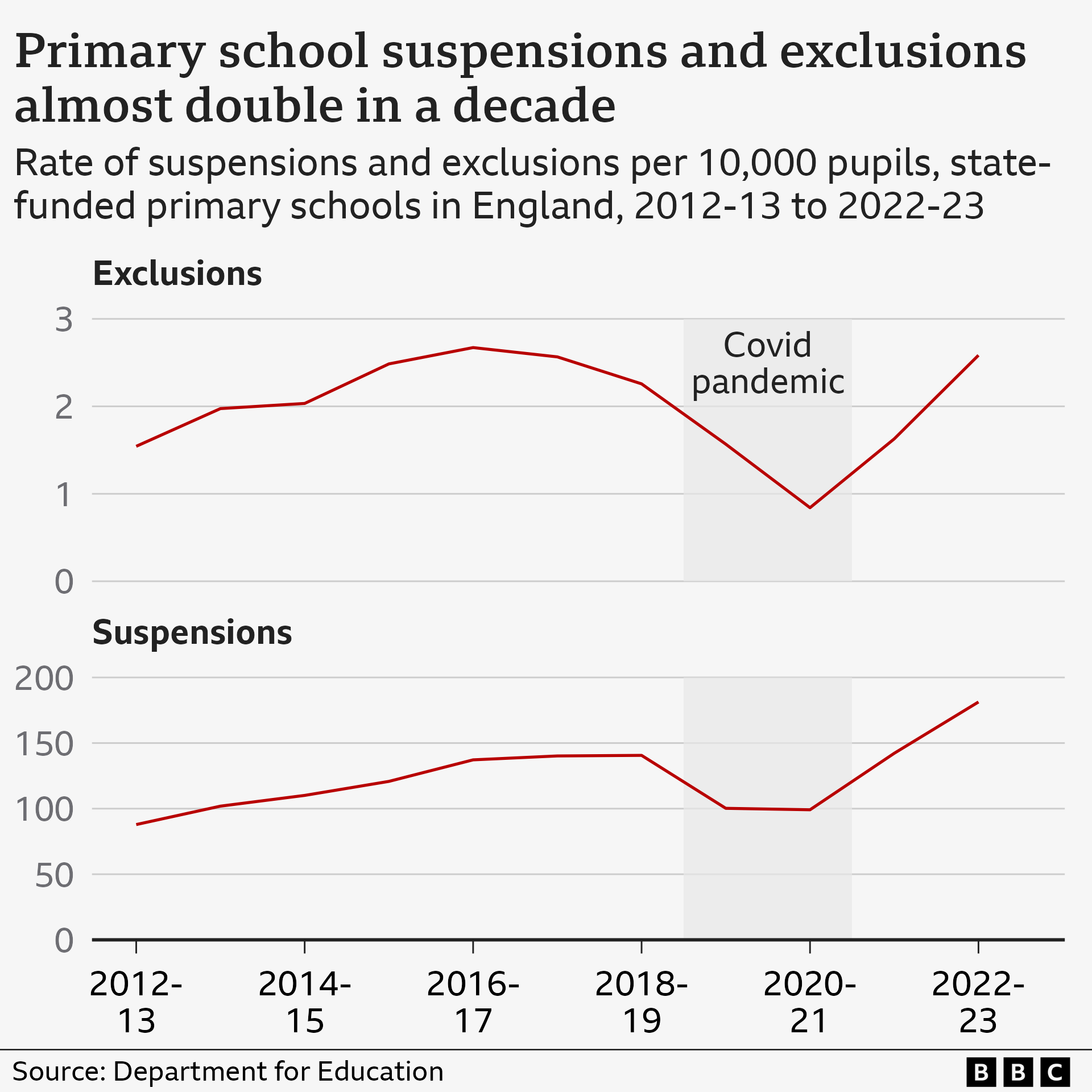
The majority of suspensions and exclusions - around nine out of 10 - occur in secondary school, but numbers are rising among primary-age children too.
BBC News has analysed Department for Education data on the annual rate of suspensions over a 10-year period, from 2012/13 to 2022/23.
There were 84,300 suspensions in primary schools in 2022/23- a rate of 180 per 10,000 pupils. It has doubled in 10 years.
The rate of permanent exclusions is much lower, at 2.6 in every 10,000 pupils - but it has also increased by almost 70% in the same time period.
Suspended pupils must stay out of school for a fixed period up to a maximum of 45 days in a school year, while those excluded are permanently removed from their school.
After being excluded, Jacob began attending Perryfields Primary pupil referral unit in Worcester. Jo says her son is now thriving, and she is optimistic about his transition to secondary school next year.
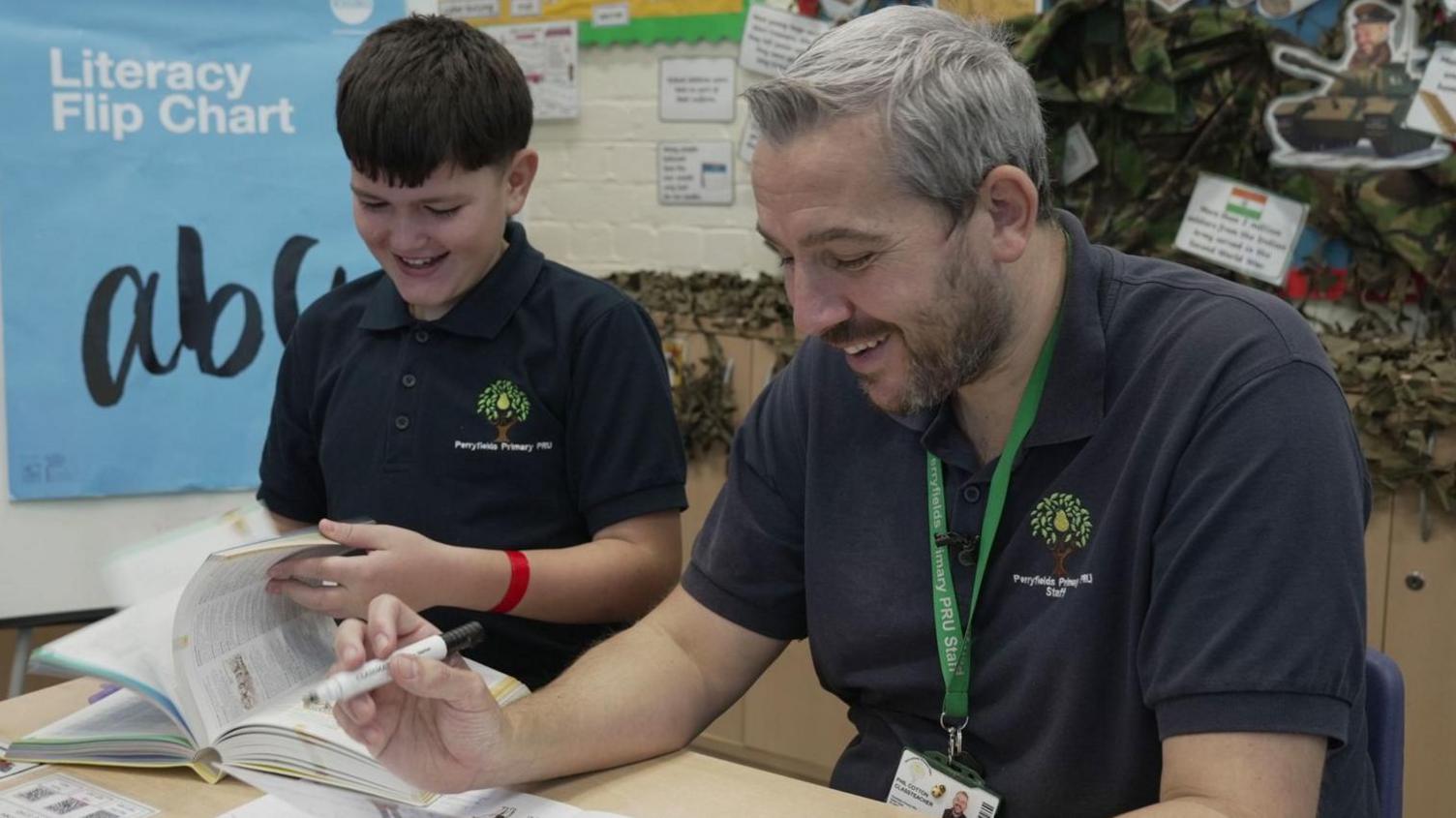
Jo says the positive culture at Perryfields is making a difference to Jacob
Perryfields has 24 spaces for primary-age children.
It also offers training, on behaviour and Send support, to more than 100 schools across South Worcestershire.
Head teacher Pete Hines has noticed growing numbers of younger children coming through his doors across his 20 years of experience.
“The complexity of the needs of the children I've seen in that time is growing and growing,” he says.

Inside the Perryfields pupil referral unit
Most of the children at Perryfields are on short-term placements, and keep strong links to their mainstream primary school by wearing their school uniform, and often revisiting their old school in the afternoon.
Mr Hines says a successful referral unit “should be an intervention, not a destination” and that one of the most valuable things is seeing “happy children… having successes they didn’t believe that they could have”.
Vanessa Longley, chief executive of children's charity Chance UK, says an exclusion can follow a child beyond their school life. Their research suggests 90% of those excluded, external at primary school fail to pass GCSE English and maths.
“These are the children who were worst impacted by Covid, but also weren’t able to get early diagnosis and intervention for issues they were facing,” she says.
She is calling for the government to ring-fence money for early intervention in primary schools.
Self-esteem hit by suspensions
Lydia says her six-year-old son, Eddie, has been suspended from primary school 14 times since January.
She says the incidents - which included lashing out at staff - are related to his autism, which was recently diagnosed.
She says his self-esteem was “hugely impacted” by the suspensions: “At that age you don’t understand, you just think you’re bad.”
Eddie has moved to a different, smaller school, while Lydia applies for an EHCP for him.
Former children’s commissioner for England, Anne Longfield, acknowledges the pressure schools are under - recent research suggests a third of children starting primary school are not “school-ready”, external - but says excluding primary-age children should be a last resort.
Ms Longfield says a “culture of exclusions” over the last decade has been driven by an “emphasis on academic achievement and grades”.
To bring suspension and exclusion rates down, she believes the focus should be on other interventions, such as one-to-one teaching where needed.
Schools in England could soon be judged on how inclusive they are and how well they support vulnerable children, under changes to inspection which Ofsted will consult on early next year.
The Education Minister Stephen Morgan told the BBC the government is already investing £1 billion in Send and providing access to specialist mental health professionals in every school.
He said: "We know there is more to do, and are looking closely at how we can go further to support teachers and drive up standards for all our children.”
Data analysis by Rebecca Wedge-Roberts
Get in touch
Have you been affected by the issues raised in this story?
Related topics
- Published27 July 2024
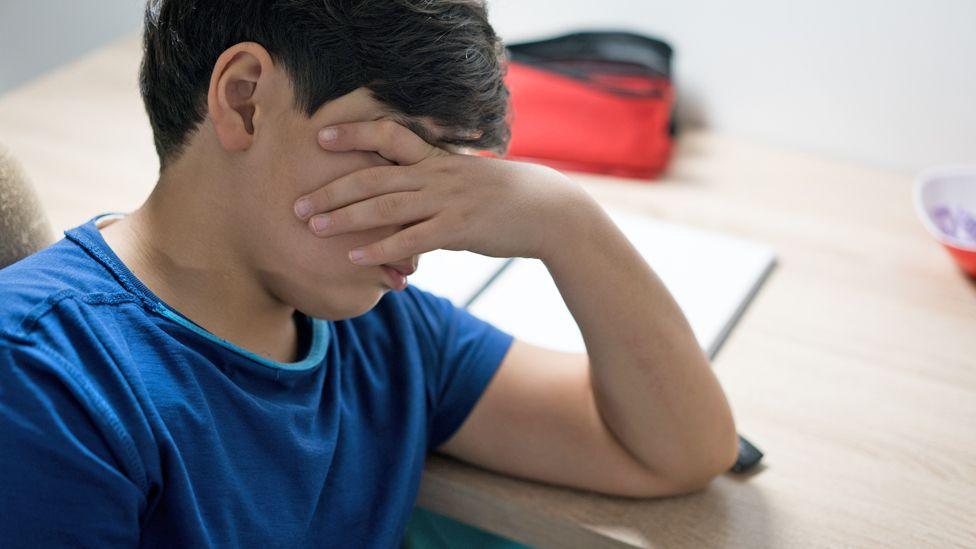
- Published29 April 2024
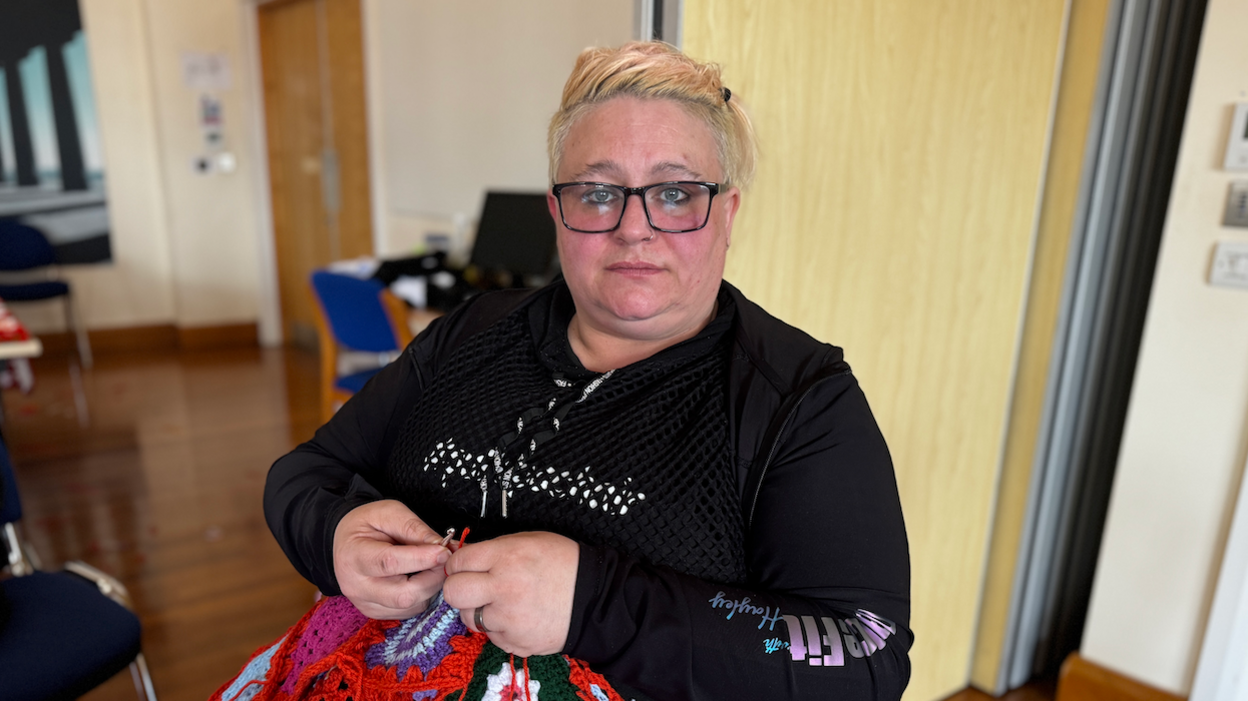
- Published24 October 2024
